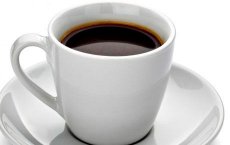Medical expert of the article
New publications
High doses of caffeine trigger panic attacks
Last reviewed: 01.07.2025

All iLive content is medically reviewed or fact checked to ensure as much factual accuracy as possible.
We have strict sourcing guidelines and only link to reputable media sites, academic research institutions and, whenever possible, medically peer reviewed studies. Note that the numbers in parentheses ([1], [2], etc.) are clickable links to these studies.
If you feel that any of our content is inaccurate, out-of-date, or otherwise questionable, please select it and press Ctrl + Enter.

Caffeine is a strong psychoactive compound, in large doses it can even lead to premature death. Just 1/16 teaspoon of caffeine is a good energy booster, but 1/4 leads to increased heart rate, sweating, anxiety. Statistics show that every twentieth adult experiences anxiety. Doctors do not rule out that drinking tea, coffee, energy drinks, etc. has a direct relationship to this.
The caffeine molecule is quite small and reaches the brain in 20 minutes, easily overcoming the blood-brain barrier, which is what makes caffeine so special. Immediately after entering the brain, the caffeine molecule prevents the absorption of the nucleoside adenosine, which transmits a signal about a drowsy state. In addition, caffeine increases the activity of the central nervous system and slightly increases blood pressure.
At the same time, as studies show, drinking large amounts of coffee and other caffeinated drinks provokes anxiety in almost every person. John Greden from the University of Michigan in his work indicated that increased doses of caffeine cause the same symptoms as anxiety neuroses. In his study, the scientist analyzed the condition of a nurse complaining of dizziness, headaches, shortness of breath, apathy, irregular heartbeat, anxiety. As it turned out, such symptoms were provoked by coffee. On average, the woman drank about 12 cups of strong black coffee per day. After the woman stopped drinking coffee, all symptoms disappeared.
Also, according to the scientist, there is a hereditary predisposition to mental disorders caused by caffeine, in particular, panic attacks and acute anxiety. Some people can fall asleep even after several cups of coffee, while other people can stay awake for several hours after just one cup of coffee, as experts note, all due to the difference in adenosine receptors.
The fact that caffeine provokes panic attacks was proven experimentally. All volunteers were divided into three groups:
- Healthy people who have not suffered from panic attacks in the past;
- People who have had mental disorders in the past;
- People who had first-degree relatives with panic disorder but did not suffer from it themselves.
The subjects were given decaffeinated coffee, then coffee with increased doses of caffeine. After decaffeinated coffee, people did not experience increased anxiety or panic attacks, but after consuming high doses of caffeine, 52% of the participants developed panic disorder. Also, 41% of people whose relatives suffered from anxiety attacks suffered from a mental disorder, although before that, they had no such symptoms at all. This experiment confirms that anxiety attacks have a hereditary link, and caffeine can provoke such a disorder.
Scientists from Australia also studied the interaction of caffeine and stress. As it turned out, strong mental shock with high doses of caffeine can lead to hallucinations.


 [
[